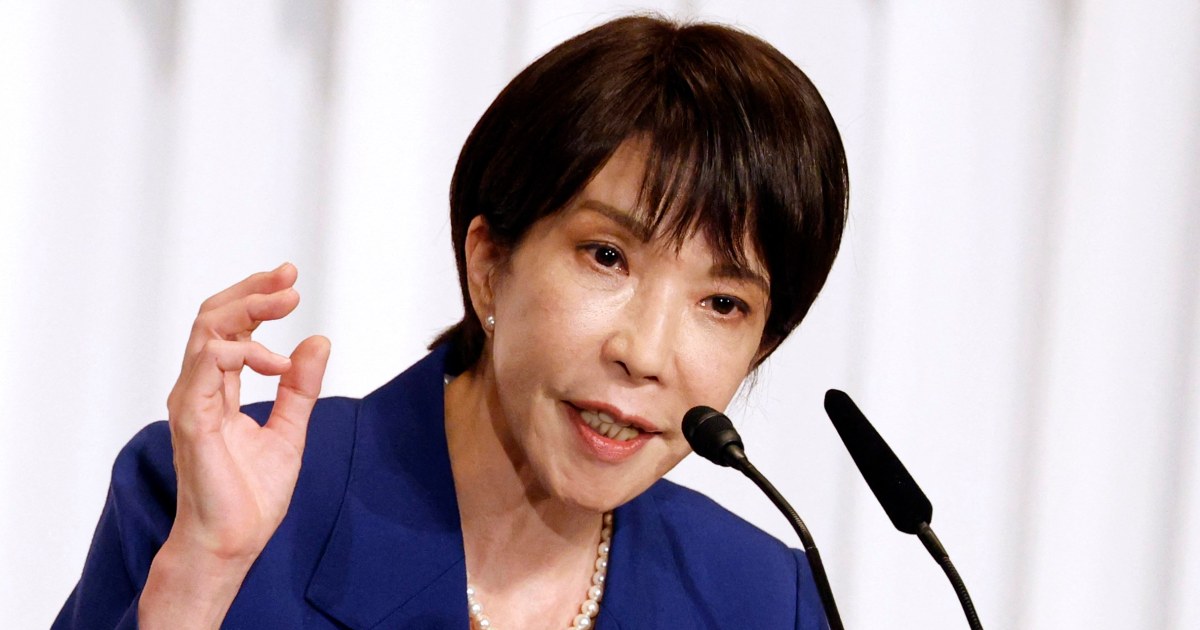Sanae Takaichi Elected Leader of Japan's LDP, Poised to Become First Female Prime Minister
In a historic move, Japan's Liberal Democratic Party (LDP) elected Sanae Takaichi, former Economic Security Minister, as its new leader on Saturday, October 4, 2025. This victory positions her as the likely successor to Prime Minister Shigeru Ishiba and could make her the first female prime minister in the country's history.
Takaichi's Background and Political Stance
Sanae Takaichi, 64, is known for her conservative nationalist views and has been described as a "China hawk." She is an admirer of Margaret Thatcher and a protégé of former Prime Minister Shinzo Abe, embracing his "Abenomics" policies. Her regular visits to the Yasukuni Shrine, a controversial site honoring Japan's war dead, have drawn criticism from neighboring countries. During her campaign, however, she tempered some of her more assertive positions.
The Election and Its Significance
Takaichi secured her victory in a runoff election against Agriculture Minister Shinjiro Koizumi, the son of former Prime Minister Junichiro Koizumi. The LDP's choice of Takaichi underscores the party's desire to regain support from conservative voters who have recently favored emerging far-right groups. The vote involved 295 LDP parliamentarians and approximately 1 million dues-paying members, representing a small fraction of the Japanese public.
Challenges Ahead for the New Leader
As the likely next prime minister, Takaichi faces numerous challenges, including an ageing population, a faltering economy, and geopolitical upheaval. She will need to address these domestic issues while also navigating complex international relations, particularly with the United States and neighboring Asian countries. Furthermore, she must unite the LDP and seek cooperation from opposition parties to effectively implement her policies.
Key Policy Positions and Potential Impact
Takaichi supports increased fiscal spending for economic growth, a stronger military, and enhanced cybersecurity. She has also advocated for tougher regulations on foreign tourists and workers. Her foreign policy stance, particularly her views on historical issues and relations with China and South Korea, could raise concerns among Asian nations. However, some analysts believe she will focus on party unity and avoid excessively hard-line positions.
Reactions and Market Implications
Analysts suggest that Takaichi's election could lead to a weaker yen, higher stock prices, and potentially delayed interest rate hikes by the Bank of Japan (BOJ). Her emphasis on economic growth may benefit sectors such as semiconductors, artificial intelligence (AI), and defense. However, her ability to manage the administration effectively and cooperate with opposition parties remains a key question.
The Road Ahead
A parliamentary vote to confirm the new prime minister is expected in mid-October. Takaichi will soon face a possible summit with U.S. President Donald Trump, where discussions on defense spending and trade are likely to occur. Her ability to build a strong relationship with Trump and navigate these complex negotiations will be crucial for Japan's future.
 Visit the website
Visit the website







